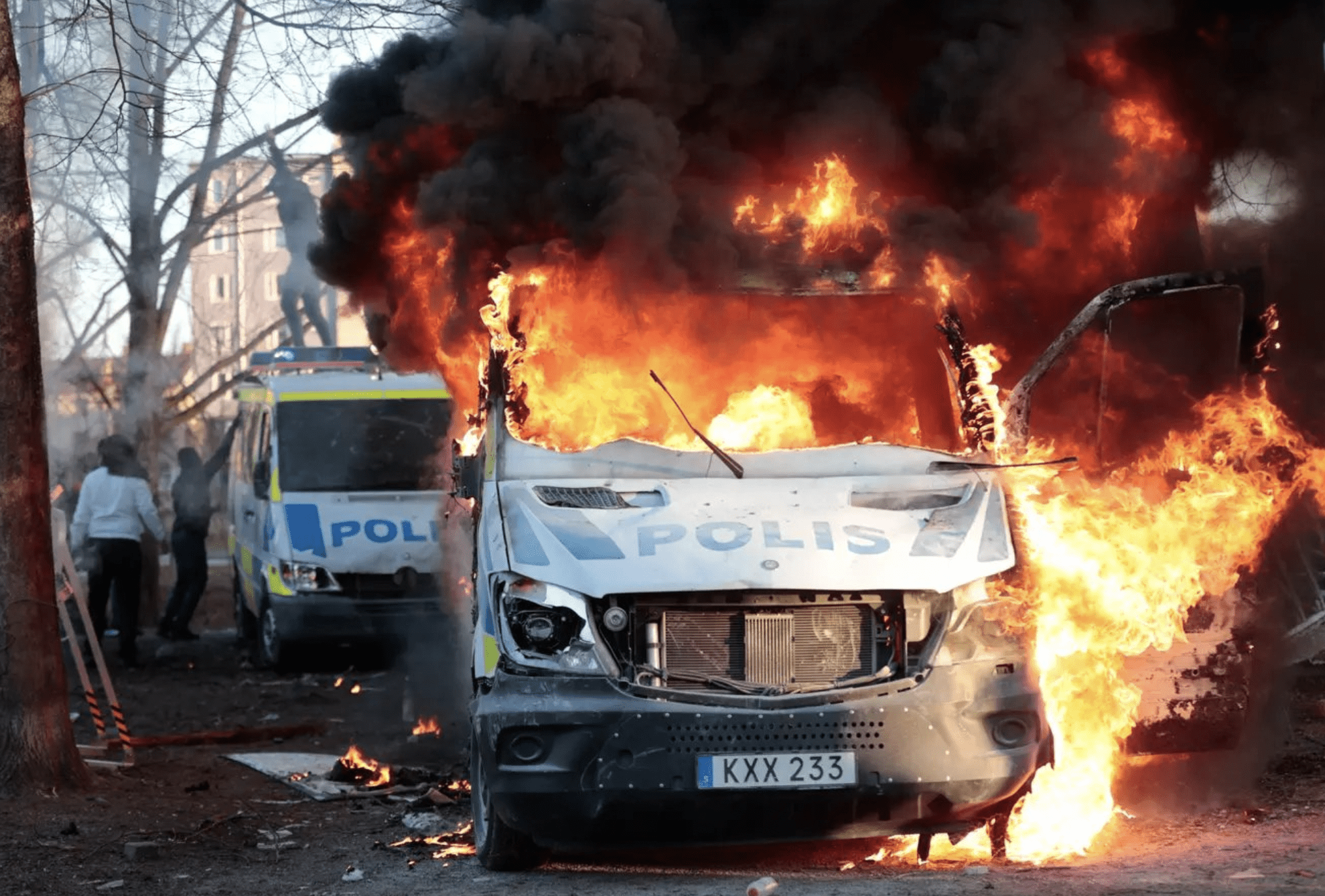
In the wake of Sweden’s Easter riots—triggered by a public Koran burning—which saw violent mobs of Islamists attack police, set vehicles alight, and destroy property in several towns and cities, a substantial minority of Swedes now believe so-called ‘offensive’ demonstrations ought to be banned outright.
The survey, carried out by the Stockholm-based market research firm Novus, was published last week by SVT Nyheter and revealed that 28% of Swedish citizens want to ban “demonstrations that can offend any person or group,” with 40% of supporters of the left-liberal parties—the Greens and ruling Social Democrats—backing the ban.
Torbjörn Sjöström, the CEO of Novus, reacted to the survey’s results with astonishment, saying: “I think it’s actually quite shocking just how many people want to limit the freedom of demonstration.”
“This is probably very much a reaction to the fact that the complexities of freedom of demonstration and expression in a democracy have not been properly discussed. Instead, the focus is on emotions, where perhaps the focus is more on not offending someone than on the right to express oneself,” Sjöström continued.
Sjöström also shined a light on the rather inconsistent position taken by supporters of Sweden’s left-liberal parties, noting that without freedom of expression, parties like the SDP and Greens would likely never have come into existence.
“These are parties where demonstrations are still a part of their everyday lives, such as May 1, for example,” Sjöström began. “Their parties would probably not have existed if the freedom of demonstration had not existed. But it is quickly forgotten because of the brutal scenes that took place this Easter.”
While the survey’s results revealed that those on the political Left were much more supportive of draconian bans on freedom of expression, voters of the anti-globalist, pro-workers party the Sweden Democrats were found to be least supportive of bans on demonstrations, at just 14%.
The poll also demonstrated a stark contrast in opinion between the sexes. While 39% of women said they support a ban on ‘offensive’ demonstrations, only 18% of men agreed with the same proposition.
The now-infamous riots were first ignited on the Thursday before Easter in the wake of a political stunt that saw anti-Islam activist and provocateur Rasmus Paludan, along with a group of loyal followers, stage a public Koran-burning in an immigrant-dominated community in the southern Swedish city of Linköping. Subsequently, severe social unrest—the likes of which hasn’t been seen in Sweden for years—ensued over the next several days in immigrant communities in Linköping, Norrköping, the Stockholm suburb of Rinkeby, and Malmo, resulting in over a hundred police officers suffering injuries.
The reverberations of Paludan’s distasteful, but legal, Koran burnings have resulted in many Swedes asking themselves whether freedom of expression and multiculturalism can truly exist alongside one another in a single society.
As The European Conservative reported days ago, Magdalena Andersson, Sweden’s left-liberal prime minister, addressed some of the issues that are believed to have helped precipitate the riots, admitting during a press conference that pro-mass migration policies pursued by the Swedish government over the past two decades—along with failure to integrate vast swaths of the newcomers—had resulted in dangerous parallel societies and rising gang violence.
“Integration has been too poor while we have had a large migration. Society has also been too weak,” the prime minister began, adding: “We live in the same country, but in completely different realities.”
Earlier this year, in a speech delivered in front of Spain’s parliament, VOX MP Rocío De Meer declared that peaceful multiculturalism never has and simply never will exist.
“The multicultural religion that [leftists] are spreading around the world, this eventual system in which we are all going to enrich each other, our cultures mutually, is a lie. Peaceful multiculturalism does not exist, cultures have been imposing themselves on each other since the beginning of time,” De Meer said.
